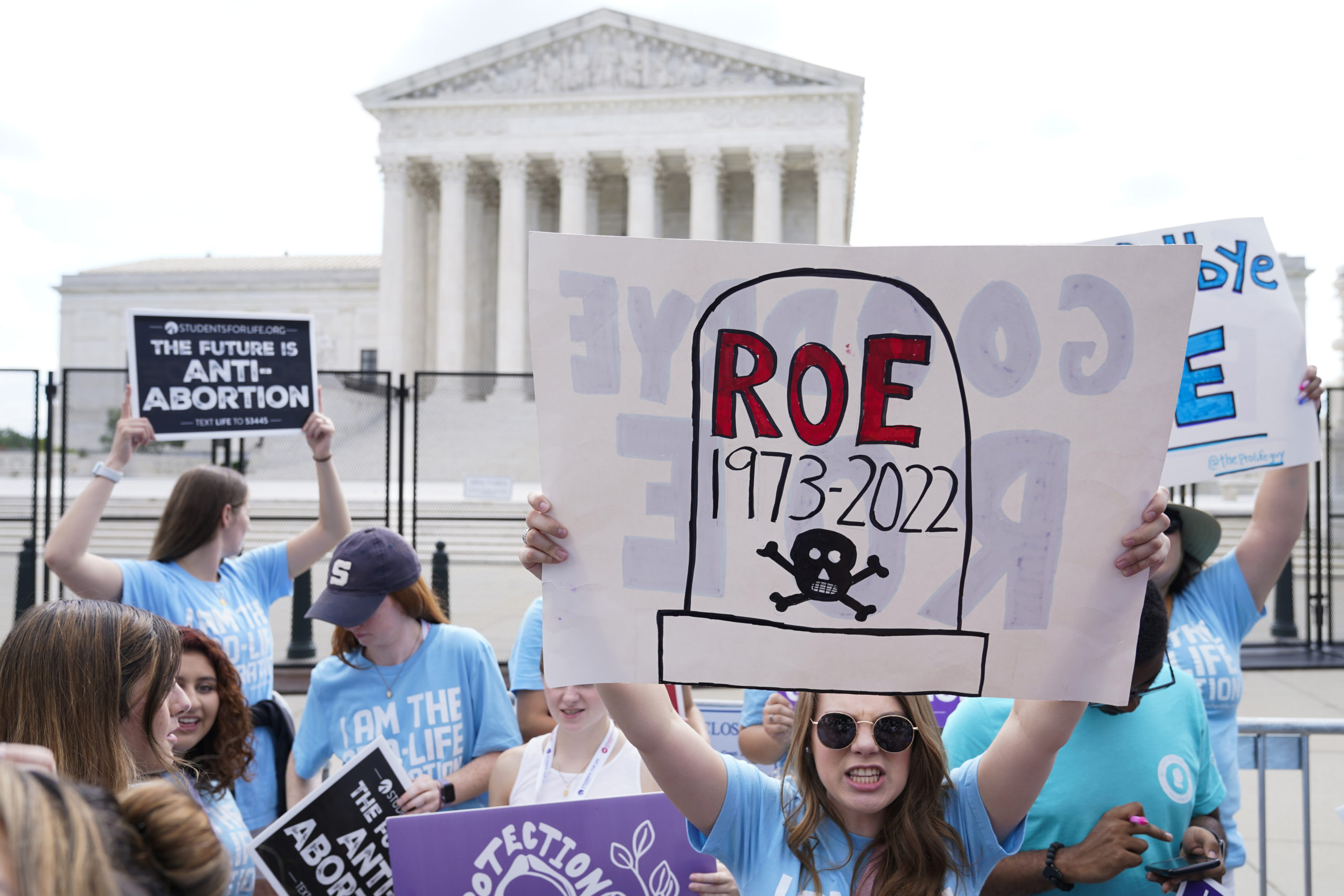The Supreme Court has overturned Roe v. Wade, ending 50 years of federal abortion rights
The Supreme Court has officially overturned Roe v. Wade, giving individual states the power to limit, ban, or allow abortion altogether.
Justice Samuel Alito wrote in the court’s opinion, “We end this opinion where we began. Abortion presents a profound moral question. The Constitution does not prohibit the citizens of each State from regulating or prohibiting abortion. Roe and Casey arrogated that authority. We now overrule those decisions and return that authority to the people and their elected representatives.”
The ruling came in the court’s opinion in Dobbs v. Jackson Women’s Health Organization, which centered on a Mississippi law that banned abortion after 15 weeks of pregnancy. The Republican-led state of Mississippi asked the Supreme Court to strike down a lower court ruling that stopped the 15-week abortion ban from taking place.
After a leak of a draft opinion to end Roe v. Wade in February surfaced, pro-choice activists began protesting at the homes of 6 conservative justices. The outrage even caused some to attempt MURDER. Last week, a suspect was charged with attempting to assassinate Justice Brett Kavanaugh.
In addition, countless pro-life pregnancy centers were vandalized and even FIREBOMBED since the opinion leak. Churches were targeted for protests and unrest as well.
Pro-life advocates see the overturn of Roe V. Wade as the rightful return of the issue to the states. They believe that the state is the best place to debate and decide on abortion restrictions.

The Outcome
Almost half of U.S. states are expected to outlaw abortion. Other states will have more liberal rules governing the termination of pregnancies. Some will simply severely restrict abortion as a result of the Supreme Court’s decision.
Over 13 Republican states have passed “trigger laws,” which means that in the event Roe v. Wade is overturned, it would immediately restrict access to abortion if the Supreme Court went so far as to overturn the 50-year precedent.
Ohio, Iowa, Georgia, and South Carolina all have laws banning abortions after the six-week mark, which has been ruled unconstitutional but would likely be revisited if Roe is overturned, the Guttmacher Institute, a pro-abortion research group, has reported.
Pro-choice advocates will need to codify Roe or enact looser abortion restrictions by passing state-level legislation.

















Add comment